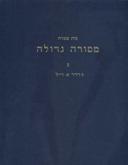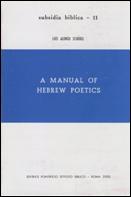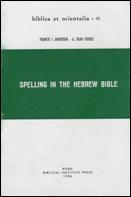BHS Helps Collection (3 vols.)
Digital Logos Edition
Overview
The BHS Helps Collection presents three terrific resources designed to enhance your study of the Biblia Hebraica Stuttgartensia. The titles comprising the collection include the Massorah Gedolah and two analyses of the language of the Hebrew Bible. The particularly noteworthy Massorah Gedolah features annotations from the Hebrew Bible; specifically, references in the form of brief excerpts to the verses where a particular text feature occurs. A Manual of Hebrew Poetics aids those wishing to undertake the practice of Hebrew poetical analysis. Spelling in the Hebrew Bible introduces the reader to the spelling present in the Hebrew Bible, its significance, and the methods and theories behind its analysis.

- Title: BHS Helps Collection
- Volumes: 3
- Pages: 1,139

The Massorah Gedolah, also known as the Masorah Magna (Mm), contains the upper and lower marginal notes of the Hebrew Bible. The marginal notes (known as Masorah, meaning in Hebrew “to hand over”) consist of instructions designed to preserve the text, maintaining a form of quality control by which the texts could avoid significant change. The Mm specifically presents references to the verses where a particular text feature occurs. As opposed to giving chapter and verse, the Mm identifies excerpts. Each verse or passage annotated by an Mm note is identified by a brief excerpt from it. The editor includes chapter and verse references to the lists in Massorah Gedolah, so one does not have to recognize a verse by the short quotation. Study of the Masorah can benefit both the scholar and the student. For instance, the BHS apparatus contains extensive citations to the Mm, so any study of the BHS would be aided by the Massorah Gedolah. A better understanding of the Tiberian text can be obtained by mastering the Masoretic notes, helping the scholar become more familiar with what constitutes a standard tradition. Study of the Masorah can also aid the student’s movement past technical matters of grammar and textual tradition, as the Masorah was a simple form of literary criticism. Note: This title is in Hebrew with a French/Hebrew Introduction

A helpful guide to analyzing Hebrew poetics. The primary purpose of this volume is not to serve as a source of information about facts and authors but rather to initiate the reader into the stylistic analysis of poetry. Everything that this manual contains by way of definition, description, or classification is given as a means to doing analysis. For this reason many of the chapters or sections either begin or end with an example of analysis. The manual is not primarily a reference book but rather a volume of initiation into the practice of analysis. Among the poetic techniques discussed are sound and sonority, rhythm, imagery, figures of speech, dialogue and monologue, development and composition.
Luis Alonso Schokel (1920-1998) was born in Madrid. In 1935 he entered the Society of Jesus in Belgium. He studied classical literature at Salamanca, Philosophy at Ona (Burgos), and theology at Comillas. From 1951 to 1957 he studied Scripture at the Pontifical Biblical Institute in Rome and received the Licentiate and Doctoral degrees. From 1957 to 1995 he was professor of Sacred Scripture at the Institute, and lectured widely in Europe, the Americas, and the Far East. He was the author of many books and articles.

Spelling in the Hebrew Bible is a valuable guide to the spelling of the Hebrew Bible. It attempts four things: first, it describes the orthographic phenomena of the Hebrew Bible; second, it assesses the evidence by means of appropriate statistical analyses; third, it interprets the evidence in terms of the history of Hebrew spelling; finally, it speculates on the significance of this evidence for studies in the production and transmission of the text.
Francis Andersen is Professor of Studies in Religion at the University of Queensland. He obtained his Ph.D. at the John Hopkins University. His main interests in scripture studies focus on linguist aspects of biblical Hebrew.
Dean Forbes manages speech recognition research at Hewlett-Packard Laboratories. He obtained his degrees from Harvard and the Pacific School of Religion. His interests include computer-assisted research in linguistics.
Reviews
5 ratings

Lincoln A. Bovee'
2/13/2019
Michael T. Fox
9/14/2016

BKMitchell
11/24/2014

Juan Ortega
2/2/2014
John Goodman
11/15/2013